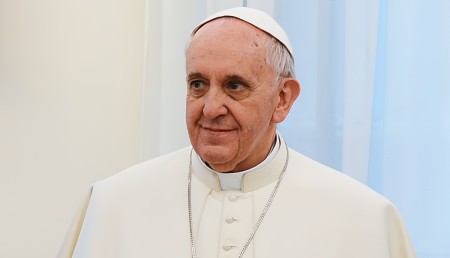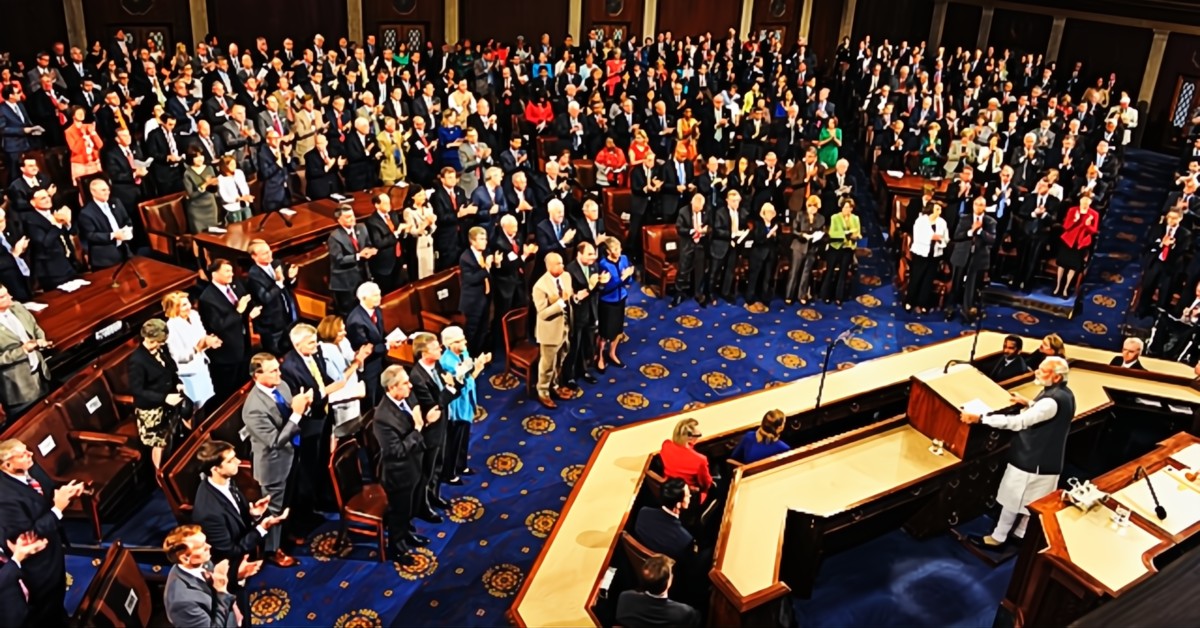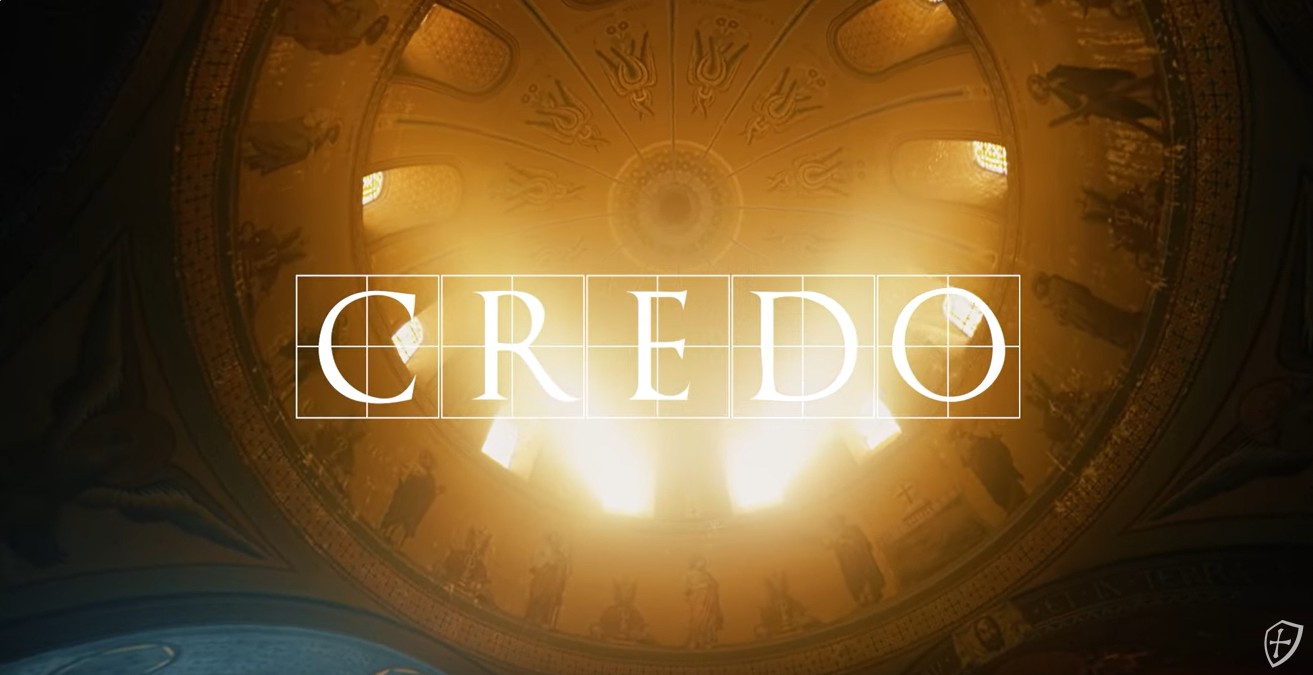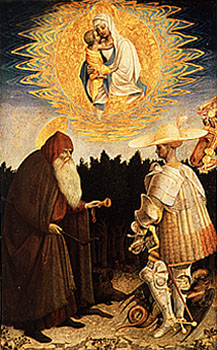We ask you, urgently: don’t scroll past this
Dear readers, Catholic Online was de-platformed by Shopify for our pro-life beliefs. They shut down our Catholic Online, Catholic Online School, Prayer Candles, and Catholic Online Learning Resources—essential faith tools serving over 1.4 million students and millions of families worldwide. Our founders, now in their 70's, just gave their entire life savings to protect this mission. But fewer than 2% of readers donate. If everyone gave just $5, the cost of a coffee, we could rebuild stronger and keep Catholic education free for all. Stand with us in faith. Thank you.Help Now >
Pope: Faith and Reason Assist Science
FREE Catholic Classes
Ten years after John Paul II's Fides et Ratio, Benedict XVI reiterates the value of collaboration between science, reason and faith so that research "remains at the service of man."
Highlights
VATICAN CITY (AsiaNews) - Science "is not capable of establishing ethical principles," whereas philosophy and theology can keep "alive the sense of responsibility which reason and faith must have towards science, to ensure it remains at the service of man" and "does not advance alone along a difficult path full of pitfalls and not without risks."
John Paul II wrote this ten years ago in the encyclical Fides et ratio (faith and reason) which Benedict XVI referred to today in his address to the participants in an international conference organised by the Pontifical Lateran University to commemorate the document that is "characterised by its great openness to reason, especially in a period in which there is speculation about its weakness."
In this encyclical John Paul II underlined the importance of "uniting faith and reason in a reciprocal relationship, while respecting the autonomy proper to each." With it the Church "sought to defend the force of reason and its capacity to arrive at truth, while once again presenting the faith as a specific form of knowledge thanks to which we open to the truth of Revelation (cf Fides et ratio, 13).
A look at history shows that "goals reason can reach when moved by passion for truth. Who can deny the contribution the great philosophical systems have made to the development of man's self-knowledge and to the progress of various cultures?"
"Nonetheless, we cannot conceal the fact that there has been a slide from a prevalently speculative form of thought to a chiefly empirical one. Research has turned to focus above all on the observation of nature in the attempt to discover its secrets. And the desire to understand nature has then been transformed into the desire to reproduce it."
This has not been without consequences. "Scientific and technological progress, which fides is increasingly called to confront, has altered the old concept of ratio; in some way it has marginalised the reason that sought the ultimate truth of things to make way for a reason that satisfies itself with discovering the contingent truths of the laws of nature."
Sadly, research has not always been directed at what is good for mankind. "Easy profits or even worse the arrogance of replacing the Creator play at times a determining role. This is a kind of hubris found in reason that can take on dangerous traits for humanity itself."
Furthermore, "science is not capable of establishing ethical principles. It can only receive and acknowledge them in order to wipe out any eventual pathology. In this context, philosophy and theology become an indispensable aid which must be taken into account to ensure that science does not advance alone along a difficult path full of pitfalls and not without risks. This does not mean limiting scientific research or prevent technology from creating tools for development. It means instead keeping alive the sense of responsibility which reason and faith must have towards science, to ensure it remains at the service of man."
"Reason," said the Pope, "discovers that beyond its own achievements and conquests there exists a truth that can never be discovered by using its own parameters, but only received as a gratuitous gift. The truth of Revelation is not superimposed on the truth achieved by reason; rather it purifies and exalts reason, enabling it to expand beyond its confines to become part of a field of research as unfathomable as the mystery itself."
"Revealed truth in 'the fullness of time' (Gal, 4:4) took on the face of a person, Jesus of Nazareth, who brought the ultimate and definitive answer to man's quest for meaningfulness. Christ's truth, since it touches each person seeking joy, happiness and meaningfulness, surpasses by far any other truth that reason can find. It is around this mystery, that fides and ratio can find a real possibility for a journey together."
Join the Movement
When you sign up below, you don't just join an email list - you're joining an entire movement for Free world class Catholic education.

-

-
Mysteries of the Rosary
-
St. Faustina Kowalska
-
Litany of the Blessed Virgin Mary
-
Saint of the Day for Wednesday, Oct 4th, 2023
-
Popular Saints
-
St. Francis of Assisi
-
Bible
-
Female / Women Saints
-
7 Morning Prayers you need to get your day started with God
-
Litany of the Blessed Virgin Mary
Pope Francis Suffers Fall: A Look at Papal Health and Succession
-

The Erosion of Civility in Congressional Hearings: A Call for Professional Decorum
-

Bishop Strickland and Others Defend Apostolic Tradition in New Documentary on the Church's Enduring ...
-
At Least 25 Dead as Wildfires Continue to Rage Across Los Angeles, Arson Investigations Underway
-
Australian Woman Charged with Torture After Exploiting Child for Donations
Daily Catholic
 Daily Readings for Friday, January 17, 2025
Daily Readings for Friday, January 17, 2025 St. Anthony the Abbot: Saint of the Day for Friday, January 17, 2025
St. Anthony the Abbot: Saint of the Day for Friday, January 17, 2025 Prayer for a Blessing on the New Year: Prayer of the Day for Tuesday, December 31, 2024
Prayer for a Blessing on the New Year: Prayer of the Day for Tuesday, December 31, 2024- Daily Readings for Thursday, January 16, 2025
- St. Fursey: Saint of the Day for Thursday, January 16, 2025
- St. Theresa of the Child Jesus: Prayer of the Day for Monday, December 30, 2024
![]()
Copyright 2024 Catholic Online. All materials contained on this site, whether written, audible or visual are the exclusive property of Catholic Online and are protected under U.S. and International copyright laws, © Copyright 2024 Catholic Online. Any unauthorized use, without prior written consent of Catholic Online is strictly forbidden and prohibited.
Catholic Online is a Project of Your Catholic Voice Foundation, a Not-for-Profit Corporation. Your Catholic Voice Foundation has been granted a recognition of tax exemption under Section 501(c)(3) of the Internal Revenue Code. Federal Tax Identification Number: 81-0596847. Your gift is tax-deductible as allowed by law.






 Daily Readings for Friday, January 17, 2025
Daily Readings for Friday, January 17, 2025 St. Anthony the Abbot: Saint of the Day for Friday, January 17, 2025
St. Anthony the Abbot: Saint of the Day for Friday, January 17, 2025 Prayer for a Blessing on the New Year: Prayer of the Day for Tuesday, December 31, 2024
Prayer for a Blessing on the New Year: Prayer of the Day for Tuesday, December 31, 2024

